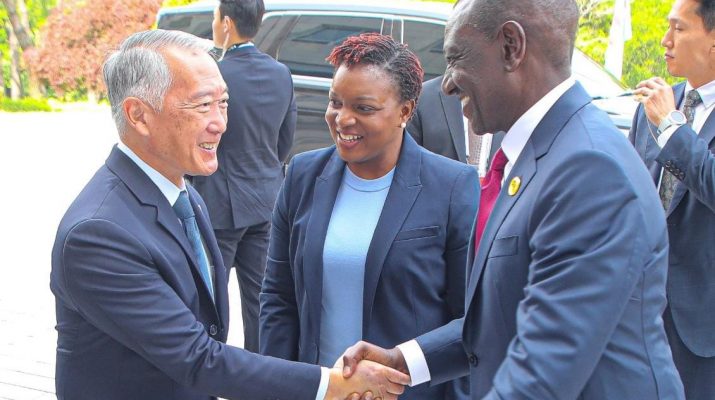By Diana Wenwa
In a decisive response to recent media reports highlighting vaccine shortages in Kenya, the Ministry of Health has initiated urgent measures to ensure the protection of children against vaccine-preventable diseases. These efforts include a significant financial commitment and the reinforcement of vaccine distribution infrastructure.
The Ministry has allocated Kshs 1.25 billion to procure critical childhood vaccines, including BCG, Oral Polio, Tetanus-Diphtheria, and Measles Rubella, which had reached alarmingly low levels in the country. Today, the Ministry announced the receipt of the following vaccines:
1,209,500 doses of Measles-Rubella
3,032,000 doses of Oral Polio (bOPV)
1,000,000 doses of Tetanus-Diphtheria
3,129,000 doses of BCG
These vaccines are now being processed for urgent distribution to the nine regional vaccine stores across Kenya. To expedite delivery, additional refrigerated trucks have been engaged, ensuring these vital vaccines reach health facilities and communities by the second week of June 2024.
The Ministry of Health has called on healthcare workers to collaborate with community health teams to ensure all children who missed vaccinations are brought up to date with their immunization schedules. Caregivers are also urged to bring their children back to health facilities for immunization, as vaccine supplies have now been stabilized.
Acknowledging the support from Gavi over the years, the Ministry remains committed to a smooth transition towards self-financing by 2030. To prevent future stockouts, the Ministry is exploring innovative financing options for sustainable vaccine procurement and program operations.
This includes ongoing engagement with the National Treasury to secure increased and dedicated resources for the immunization program, ensuring stable vaccine supplies.
Ring-fencing domestic resources is seen as crucial for sustainable immunization financing and universal vaccine access, in line with Kenya’s primary healthcare goals.
The Ministry expressed gratitude to immunization partners, the media, and civil society for their role in raising awareness about the vaccine shortages, demonstrating strong community health-seeking behaviour and demand for vaccines in Kenya.
The swift intervention by the State Department of Medical Services, the National Vaccines and Immunization Program, and UNICEF’s supplies division was also commended.
In a complementary development, Kenya has formally joined the International Vaccine Institute (IVI) as a Member State, reinforcing the country’s commitment to achieving self-reliance in vaccine production.
Read more: Kenya Joins The International Vaccine Institute
This accession was marked by a ceremony at IVI headquarters in Seoul, South Korea, attended by President William Samoei Ruto, IVI Director-General Jerome Kim, and Cabinet Secretary for Health Nakhumicha S. Wafula.
The IVI will establish a Country and Project Office in Nairobi, serving as the regional headquarters and enhancing vaccine availability, primary healthcare delivery, and disease prevention.
These collective efforts highlight Kenya’s dedication to improving its healthcare infrastructure and ensuring the health and well-being of its population, particularly its children.

